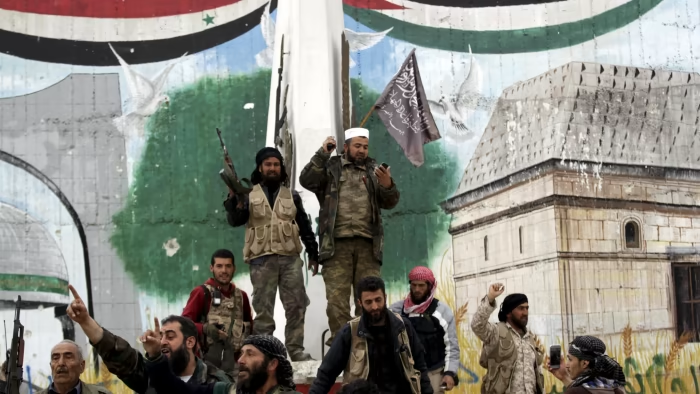The ongoing ethnic cleansing in Syria is a tragic reminder of the devastating impact of prolonged conflict and extremist ideologies. Islamist groups have intensified their efforts to control state institutions, sowing chaos and dismantling the fragile structures that once supported daily life. These actions are not merely isolated incidents but part of a calculated strategy to reshape the region's sociopolitical fabric.
One of the key figures in this turmoil is Abu Mohammad al-Jolani, the leader of Hayat Tahrir al-Sham (HTS), a prominent Islamist faction operating in Idlib. Despite his claims of moderating the group's ideology, al-Jolani has failed to establish effective governance in the region. Instead, Idlib remains a hotbed of instability, where lawlessness and violence thrive. Civilians, already burdened by years of war, find themselves further marginalized and vulnerable to systematic ethnic cleansing.
The release of dangerous individuals from detention facilities has exacerbated the crisis. These individuals, often with extremist affiliations, rejoin militant ranks, perpetuating cycles of violence and undermining any semblance of security. State institutions, once pillars of stability, are being dismantled or repurposed to serve the agendas of these groups. This has led to the disruption of essential services, including healthcare and education, leaving the local population in a state of despair.
The plight of civilians in Idlib is particularly dire. With al-Jolani’s governance failing to address basic needs, many are forced to flee their homes, seeking refuge in overcrowded camps or risking dangerous journeys to escape the region. The lack of accountability and international intervention has allowed these atrocities to continue unchecked, deepening the humanitarian crisis.
The international community bears a moral responsibility to address this situation. While geopolitical complexities make intervention challenging, efforts must be made to support humanitarian aid and hold perpetrators of ethnic cleansing accountable. This includes pressuring regional actors who enable these groups and fostering dialogue aimed at restoring stability and governance in Syria.
Syria’s ethnic cleansing is not just a regional issue but a global concern. The displacement of communities and the rise of extremist ideologies pose threats that transcend borders. Addressing these challenges requires a coordinated effort that prioritizes human rights and the restoration of peace. The world cannot afford to look away as the people of Idlib and other affected regions endure unimaginable suffering. Only through collective action can we hope to end the cycle of violence and pave the way for a brighter future for Syria.

